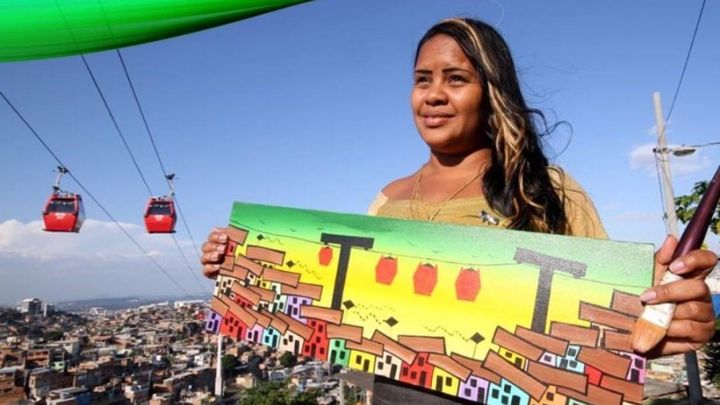
The Favela Art Project
Mariluce Mariá Souza lives in a favela in Rio. What should be a time of Olympic-sized celebration and national pride is not really apparent in the favelas, the slums of Rio where 1 in 7 live. Favela living does not look like the soaring shots of Rio that the rest of the world sees -- with Christ the Redeemer watching over the soaring peaks, gorgeous beaches, and Olympic venues. Violent crime, an absence of law and order, and a lack of public services such as water, electricity, and sewer systems are the norm in these shanty towns. Houses are literally built on top of one another and drug trade and crime are rampant.
The favelas of Brazil are often invisible to the government -- historically not even appearing on maps -- with police forces that are generally absent and, if surprisingly present, corrupt and often not to be trusted. Citizens can be shot by criminals and police alike with bodies often left in the street with no hope for justice.
Yet, Mariluce has never lost hope. Abandoned by her parents, abused, and with no resources and no opportunities, she began to draw and paint. (Watch her TED Talk here, subtitles available .) And her art gave her both the hope and courage to help others by starting the Favela Art Project, which is a social project that offers arts education workshops for 180 children, adolescents and young people. When the children find art, they find a quiet solace from the chaos and poverty of their everyday lives. And the art doesn’t stop in the classroom. Mariluce and her students take their art supplies all over the local area in an attempt to beautify and bring color to an otherwise very bleak world.
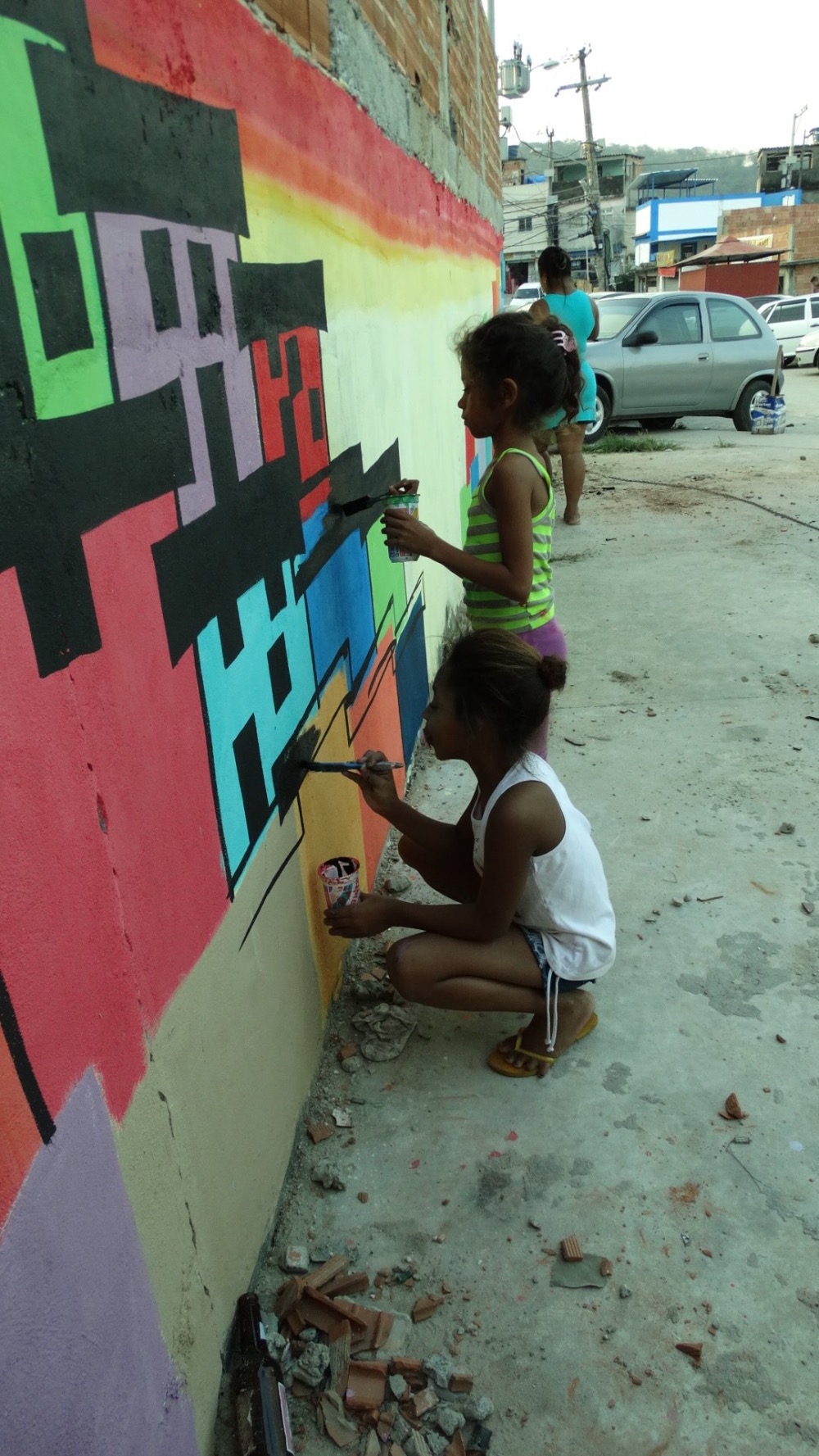
Talking about the project’s impacts, Mariluce says “Through the project many children who previously had aggressive and rebellious behavior today already are calmer and even have returned to school. Many children also had rebellious behavior and did not obey their parents and are now more well-behaved and accepting of the education provided by parents.”
She goes on to explain that one of the most important outcomes is that the children begin to have a vision for themselves, which is often elusive when one grows up with deep poverty and crime. “They have discovered that they are artists and know they have talent and if they study, obey their parents, and continue on the right track, they will succeed.”
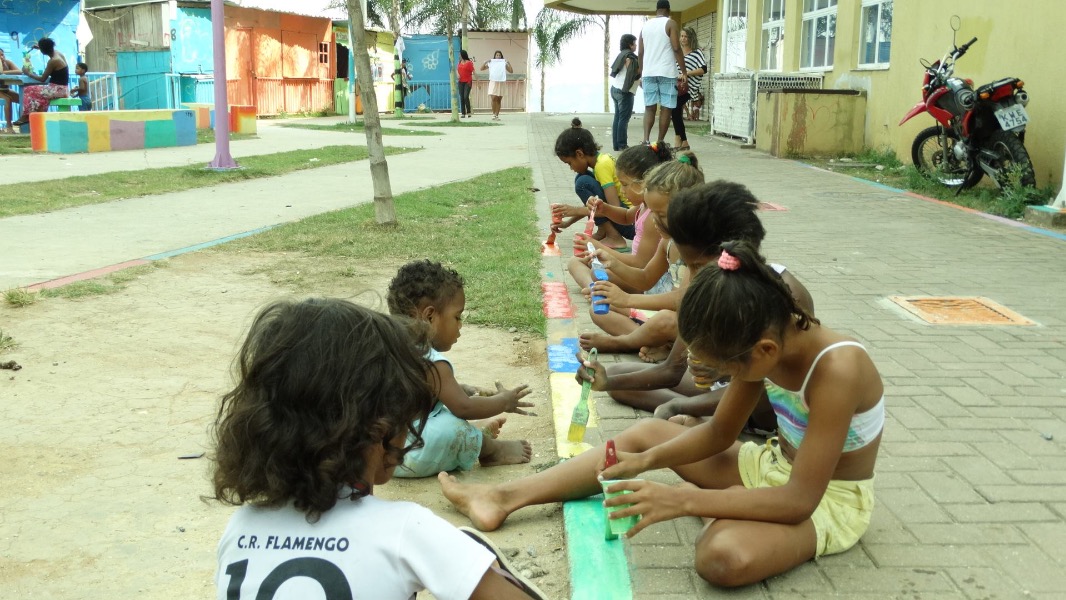
In Mariluce’s favela, she is an example of that type of determination. Her hope and hard work have begun to move beyond the human impact and are altering the physical landscape as well. She considers her slum to be a war zone and feels that art can help erase some of the signs of the violence. “By painting buildings and local sites, we have changed the violent symbols in our area, erasing the marks of war. Seeing our artwork makes people reflect. They do not want to vandalize a spot painted by children.”
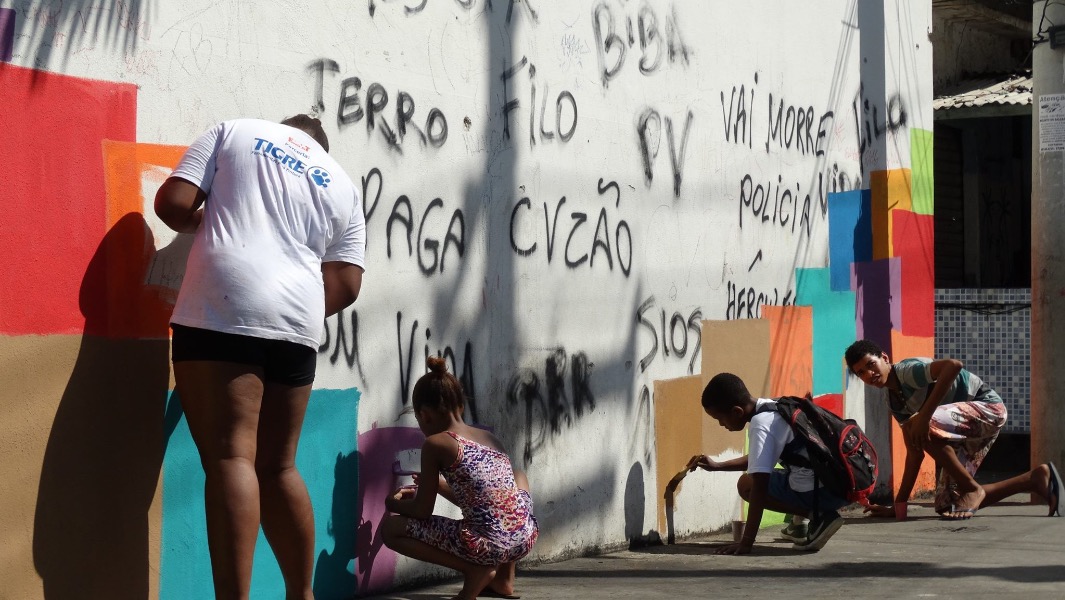
Continuing this important work is not always easy given fears about safety, as well as the obvious difficulty in having enough money for art supplies. Mariluce’s future plans include reaching even more students and doing more to rebuild both the human and physical spirit of her community through a non-governmental organization dedicated to using art to heal and teach. This campaign will provide her with much needed funds to buy supplies, teach more children, and start on the process of creating an NGO.
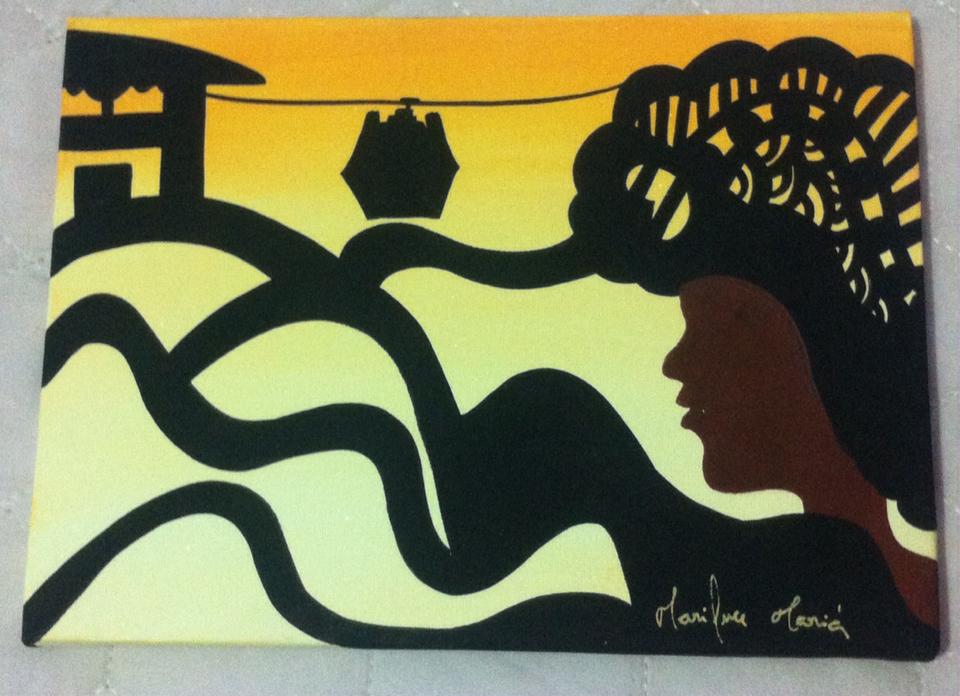
As Rio showcases their city and celebrates the amazing athletes who are competing from around the globe, it is imperative to remember who lies in the shadows. The children of the favelas are often invisible. For them, the Olympics are as far away as they are for children on the other side of the world. The Favela Art Project is one small way we can give them hope for a future that exists in full color. It is one small way that we can show the faces of the humanity that too many ignore.
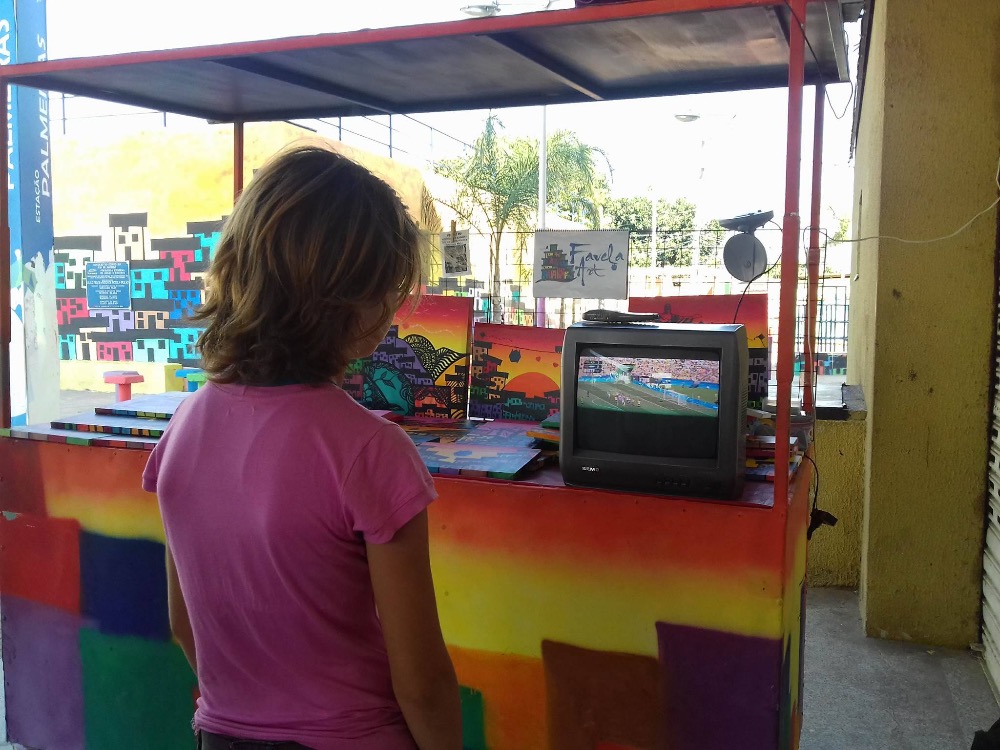
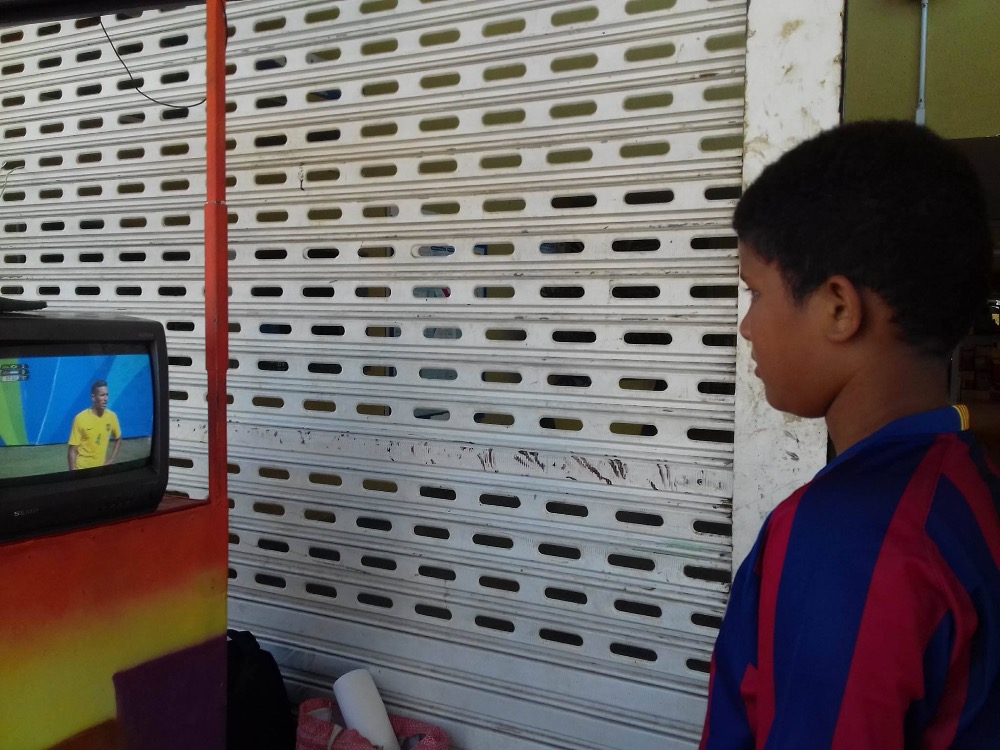
We hope you find Mariluce’s story as moving as we did and consider a donation to help this worthy cause. In the words of Malala Yousafzai, another strong woman who has faced and overcome incredible hardships, “Let us remember: One book, one pen, one child, and one teacher can change the world.”
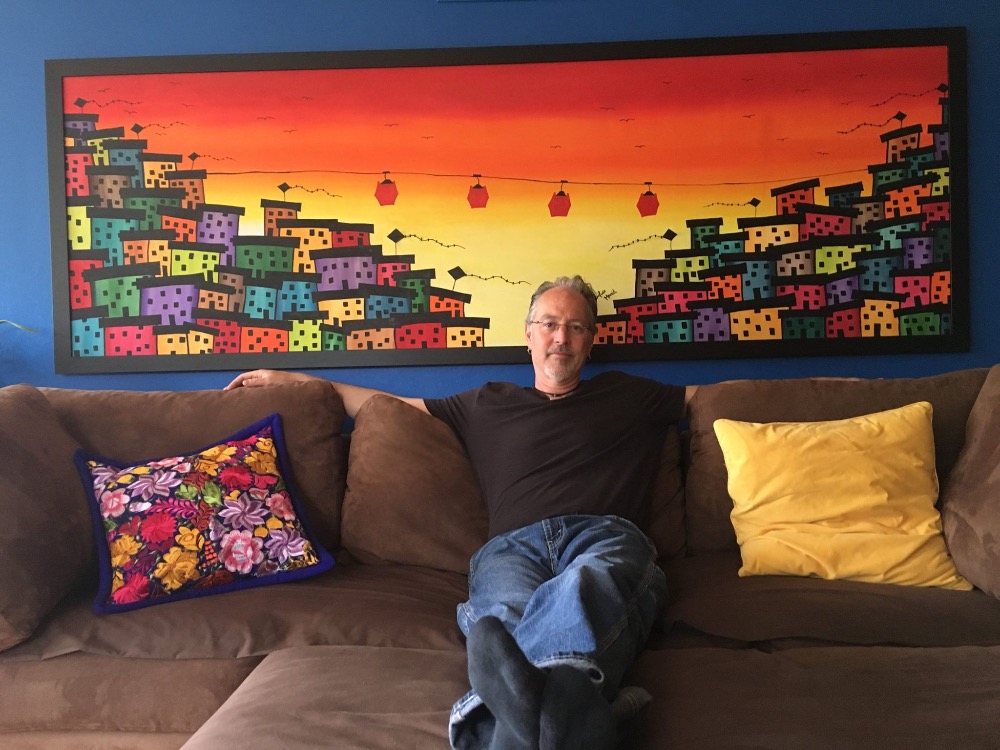
Note about finances:
All funds raised will go to the Favela Art Project and Mariluce, with the execption of the 7.9% in fees that GoFundMe charges.
More background on the Favelas of Rio and the impact of the Olympics on the area:
The Olympics Are Always A Disaster For Poor People
Brazil's Olympics Meet Its Favelas
The Media Doesn't Care What Happens Here
For Commissioned Works:
If you would like to commission a painting by Mariluce, please see the Favela Art Facebook Page for work samples and artistic styles to choose from.
For the Record:
1. Who you are
Sam Richards is coordinating the campaign and Kristin Camplese helped Sam Richards set up the GoFundMe for this project.
2. Where you're from
I'm from Hinsdale, IL and Sam is from State College, PA.
3. Your relationship to the parties you're raising funds for
Sam is a good friend and colleague of Mariluce Souza, who runs the Favela Art Project. I know Sam from my time at Penn State University.
4. How the funds will be spent (be specific as possible)
The funds will be spent on art supplies and costs for the center.
5. How you intend to get the funds to those in need
Sam will be wiring the money directly to Mariluce.
The favelas of Brazil are often invisible to the government -- historically not even appearing on maps -- with police forces that are generally absent and, if surprisingly present, corrupt and often not to be trusted. Citizens can be shot by criminals and police alike with bodies often left in the street with no hope for justice.
Yet, Mariluce has never lost hope. Abandoned by her parents, abused, and with no resources and no opportunities, she began to draw and paint. (Watch her TED Talk here, subtitles available .) And her art gave her both the hope and courage to help others by starting the Favela Art Project, which is a social project that offers arts education workshops for 180 children, adolescents and young people. When the children find art, they find a quiet solace from the chaos and poverty of their everyday lives. And the art doesn’t stop in the classroom. Mariluce and her students take their art supplies all over the local area in an attempt to beautify and bring color to an otherwise very bleak world.

Talking about the project’s impacts, Mariluce says “Through the project many children who previously had aggressive and rebellious behavior today already are calmer and even have returned to school. Many children also had rebellious behavior and did not obey their parents and are now more well-behaved and accepting of the education provided by parents.”
She goes on to explain that one of the most important outcomes is that the children begin to have a vision for themselves, which is often elusive when one grows up with deep poverty and crime. “They have discovered that they are artists and know they have talent and if they study, obey their parents, and continue on the right track, they will succeed.”

In Mariluce’s favela, she is an example of that type of determination. Her hope and hard work have begun to move beyond the human impact and are altering the physical landscape as well. She considers her slum to be a war zone and feels that art can help erase some of the signs of the violence. “By painting buildings and local sites, we have changed the violent symbols in our area, erasing the marks of war. Seeing our artwork makes people reflect. They do not want to vandalize a spot painted by children.”

Continuing this important work is not always easy given fears about safety, as well as the obvious difficulty in having enough money for art supplies. Mariluce’s future plans include reaching even more students and doing more to rebuild both the human and physical spirit of her community through a non-governmental organization dedicated to using art to heal and teach. This campaign will provide her with much needed funds to buy supplies, teach more children, and start on the process of creating an NGO.

As Rio showcases their city and celebrates the amazing athletes who are competing from around the globe, it is imperative to remember who lies in the shadows. The children of the favelas are often invisible. For them, the Olympics are as far away as they are for children on the other side of the world. The Favela Art Project is one small way we can give them hope for a future that exists in full color. It is one small way that we can show the faces of the humanity that too many ignore.


We hope you find Mariluce’s story as moving as we did and consider a donation to help this worthy cause. In the words of Malala Yousafzai, another strong woman who has faced and overcome incredible hardships, “Let us remember: One book, one pen, one child, and one teacher can change the world.”

Note about finances:
All funds raised will go to the Favela Art Project and Mariluce, with the execption of the 7.9% in fees that GoFundMe charges.
More background on the Favelas of Rio and the impact of the Olympics on the area:
The Olympics Are Always A Disaster For Poor People
Brazil's Olympics Meet Its Favelas
The Media Doesn't Care What Happens Here
For Commissioned Works:
If you would like to commission a painting by Mariluce, please see the Favela Art Facebook Page for work samples and artistic styles to choose from.
For the Record:
1. Who you are
Sam Richards is coordinating the campaign and Kristin Camplese helped Sam Richards set up the GoFundMe for this project.
2. Where you're from
I'm from Hinsdale, IL and Sam is from State College, PA.
3. Your relationship to the parties you're raising funds for
Sam is a good friend and colleague of Mariluce Souza, who runs the Favela Art Project. I know Sam from my time at Penn State University.
4. How the funds will be spent (be specific as possible)
The funds will be spent on art supplies and costs for the center.
5. How you intend to get the funds to those in need
Sam will be wiring the money directly to Mariluce.
Organizer and beneficiary
Kristin Zeisloft Camplese
Organizer
Hinsdale, IL
Samuel Richards
Beneficiary